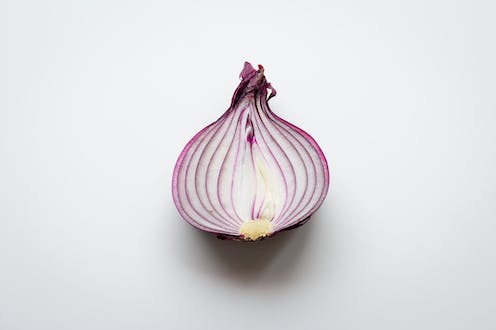Truth is a fact coated in many layers. K8 / Unsplash
Since the dawn of philosophical knowledge, the existence of truth has been debated. We all talk about the truth. We all ask for the truth. We demand it, even if we sometimes deny its existence. This article will attempt to give another view of what, for now, I believe to be the truth.
In journalism, truth is often equated with the facts: “There was an accident on such-and-such a corner, on such-and-such a day at such-and-such an hour and so many people were injured.” This is a purely informative conception of truth, based on the rule of “the 5 ‘W’s”, which frame the story: “Who, what, when, where, why.”
But we cannot take a fact as the truth. What if someone comes along and says: “It was not an accident. One of the drivers was drunk”? Here we enter into the world of interpretations.
There is no truth
In his Posthumous Fragments, the German philosopher Friedrich Nietzsche wrote his most famous phrase: “There are no facts, only interpretations.”
The phrase is as interesting as it is controversial and misinterpreted. It has been used to decree the death of truth and to indicate that everyone can have their own interpretation, i.e. their own truth.
Paradoxically, Nietzsche’s phrase fell into its own interpretative trap. When he says that there are interpretations, he is not seeking to relativise the concept of truth, but rather to say that when something happens, people find different interpretations of the event.
Portrait of Michel Foucault (1926-1984) French philosopher. Ink and watercolour.
Nemomain / Wikimedia Commons, CC BY-SA
The French philosopher Michel Foucault supports Nietzsche’s theory, but adds his trademark: power. According to Foucault, there are multiple interpretations of the facts, but power is in charge of imposing its interpretation (its truth) and totalising it. When we imagine power, we often think of gentlemen in expensive suits sitting around a table thinking “what can we arrange now?”.
But for Foucault, power is simply the capacity to position one’s own interpretation as general truth. It can be a citizen from a social network, a politician of any sign and ideology, a businesswoman or even a neighbour who starts a rumour in the neighbourhood and establishes it as absolute truth. This is also how the concept of post-truth is born.
Truth is an onion
Nevertheless, I would like to propose a simpler, but no less sophisticated, way of understanding the very concept of truth.
First of all, all theories are partly right. Truth as a concept in itself is broad. Truth is the sum of all interpretations, of facts, past and present. And one may wonder what the past has to do with the truth of the present. A quote from the existentialist philosopher Jean-Paul Sartre explains it well: “We are not lumps of clay; what is important is not what people make of us, but what we ourselves make of what they have made of us.” The present cannot be separated from the past, as we are its consequence. Without understanding the past, it is impossible to understand the present.
To make it clearer, let us imagine the concept of truth as an onion. Onions are vegetables made up of several layers that cover a core. If we make the parallel, the core would be a concrete fact: the accident on the street corner, for example. The layer that covers it would be the vision of the witnesses and the protagonists of that accident. The next layer would be the past of those involved. And so the layers overlap, moving further and further away from the event itself.
But inevitably, in one way or another, all the layers are involved in the fact we are analysing. Therefore, truth is that onion. Truth is that set of interpretations and macro-views that make a global and complete picture of all the facts possible.
The truth is not within our reach
So, is there such a thing as truth? The answer I can give is yes. Is it possible to possess the truth? My answer is a resounding no. Unless one is God or an omnipresent, omnipotent, omnitemporal being, it is impossible to possess or attain it.
But belief in the existence of a truth is fundamental. In his work The modern theme, the Spanish philosopher José Ortega y Gasset explains why this is important: “Life without truth is not livable. In such a way, then, truth exists, which is reciprocal with man. Without man there is no truth, but vice versa, without truth there is no man. Man can be defined as the being that absolutely needs truth and, conversely, truth is the only thing that man essentially needs, his only unconditional need.”
This makes the concept of truth a utopia. And what is a utopia? Uruguayan journalist and writer Eduardo Galeano explains it in an exceptional way by paraphrasing a friend:
“Utopia is on the horizon. I walk ten paces and she walks ten paces away. So what is utopia for? That’s what it’s for, to give us a reason to be walking.”
500,000+ people get our newsletters. Join them, subscribe now.
Agustín Joel Fernandes Cabal does not work for, consult, own shares in or receive funding from any company or organisation that would benefit from this article, and has disclosed no relevant affiliations beyond their academic appointment.
Related posts
La “Fundación Humanitaria de Gaza”: mercenarización y campos de concentración en la estrategia sionista de desplazamiento forzado
Por Manu Pineda La creación de la Fundación Humanitaria de Gaza (GHF) en febrero de 2025 representa un hito perverso en la instrumentalización de la ayuda como arma de guerra. Bajo la fachada del reparto de alimentos, esta organización —dirigida por exagentes de inteligencia estadounidenses…
Cómo te venden la moto: la criminalidad baja, pero el miedo cotiza al alza
El delito cae, pero la histeria mediática se dispara. El problema no es la inseguridad, es quién gana sembrándola.
El Mar Menor hierve y nadie mueve un dedo: 32 grados, nitratos y complicidad criminal
La laguna agoniza mientras políticos, regantes y especuladores siguen llenándose los bolsillos.
Maternidad o barbarie
La libertad de no ser madre no debería escandalizar a nadie en 2025. Y sin embargo…
Vídeo | Hasbara: blanqueando el genocidio
Mientras bombardea Gaza, el Estado israelí despliega una campaña global de imagen financiada con dinero público, desde los escenarios hasta los algoritmos


 Subscribe
Subscribe 



